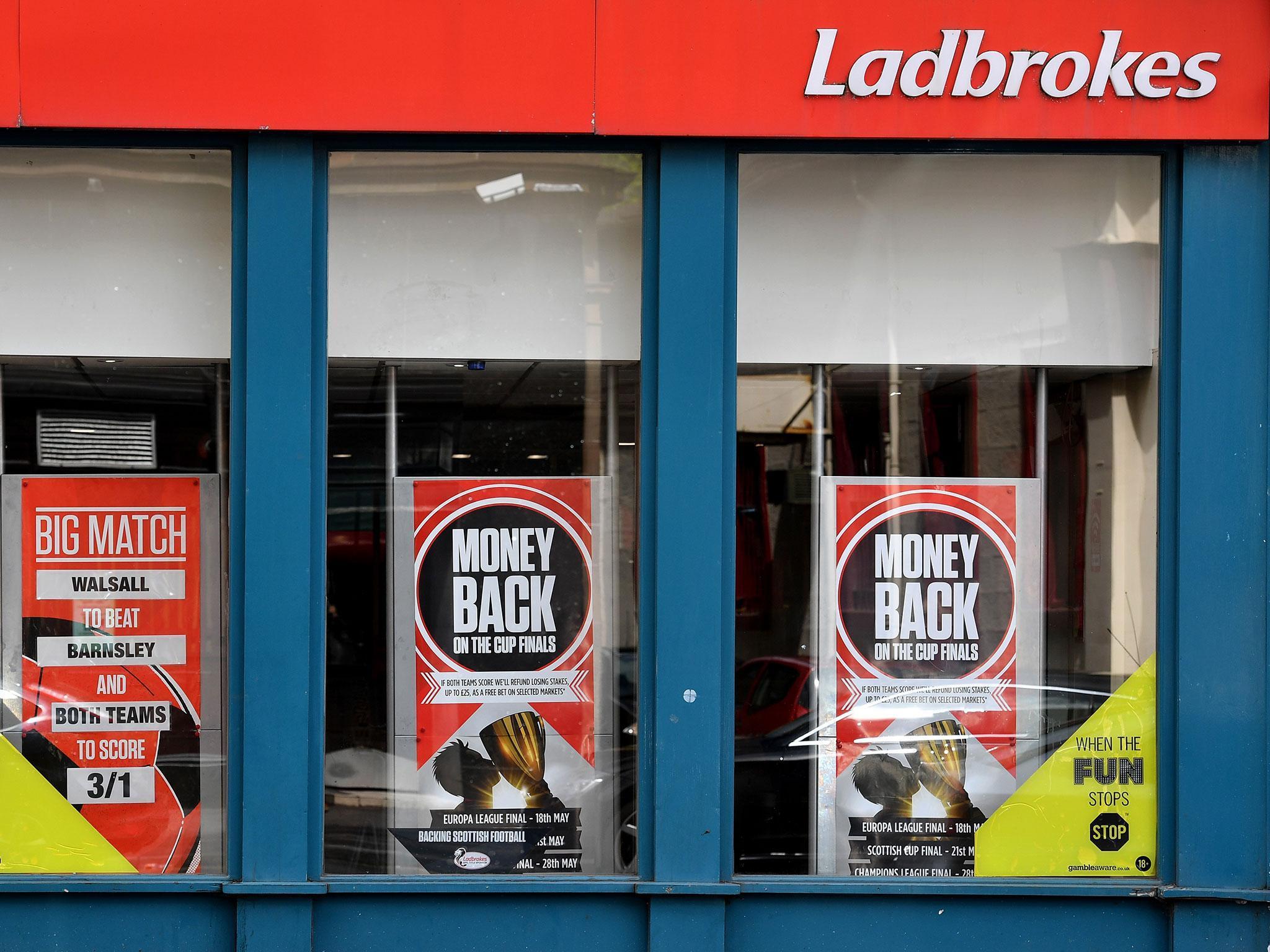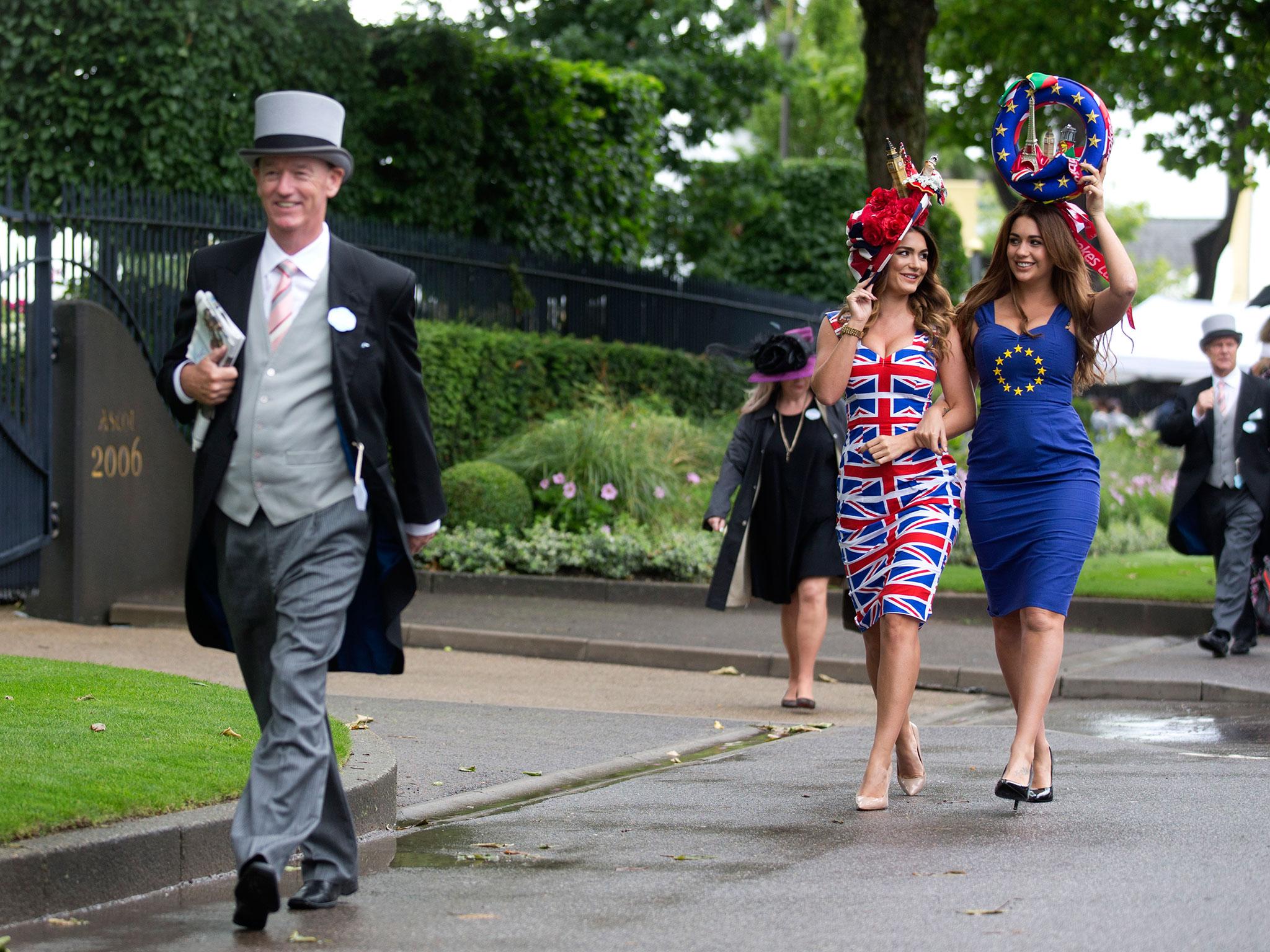EU referendum odds: Remain vote has always been bookies' favourite – and odds continue to shorten
Punters, politicians and public alike face a $64m question: in politics, who should you trust more, a sensible, clipboard-wielding pollster or a bookmaker?

Your support helps us to tell the story
From reproductive rights to climate change to Big Tech, The Independent is on the ground when the story is developing. Whether it's investigating the financials of Elon Musk's pro-Trump PAC or producing our latest documentary, 'The A Word', which shines a light on the American women fighting for reproductive rights, we know how important it is to parse out the facts from the messaging.
At such a critical moment in US history, we need reporters on the ground. Your donation allows us to keep sending journalists to speak to both sides of the story.
The Independent is trusted by Americans across the entire political spectrum. And unlike many other quality news outlets, we choose not to lock Americans out of our reporting and analysis with paywalls. We believe quality journalism should be available to everyone, paid for by those who can afford it.
Your support makes all the difference.While the polls have varied wildly, one group of people have been steadfastly consistent over the outcome of the EU referendum: the bookies.
They have made the Remain camp the odds-on favourite since February when David Cameron set the 23 June date for the vote.
Follow the latest live updates on the EU referendum
And over the last week, they have shortened their odds dramatically, going from 4-6 (implying a 60 per cent chance of winning), to as much 2/9 with an 82 per cent chance of victory – while in the past 10 days the polls have swayed between a 10-point Brexit lead and a narrow two-point margin in favour of Remain.
Which leaves punters, politicians and the public alike with the $64m question: in politics, who should you trust more: a sensible, clipboard-wielding pollster or a bookie?
Recent form suggests the bookies. They got the Scottish referendum right when some polls suggested a Yes vote, and in the 2015 general election they consistently made the Tories the largest party, even when some polls suggested a Labour victory.
And although they took a hammering from those who bet on an outright Conservative majority, the bookies did at least shorten the odds in the days immediately before voting.
Which means it may be of more than passing significance that bookies are now telling The Independent they are very confident of a Remain vote and may even make the In camp still stronger favourites in the final run-up to the vote.
Marcus Goddard, the head of political trading at Betfred, said: “It is massively likely we are going to get a vote to remain, because of the weight of money being bet.
“I [personally] would make it 80 to 90 per cent that we will remain, as opposed to something like a 50-50 split with the polls.
“It won’t be by a huge margin – by 55 to 45 per cent – but the vote will be for Remain. And possibly over the next couple of days the Remain odds will shorten even further.”
He was backed by Simon Clare of Coral, who said: “I think the bookies have got it right. If the money [people are betting] comes to something – as is happening here – you should respect that money.”
Hjalmar Kvam, the head of pre-match at William Hill, told The Independent he personally thought the real chances of Britain voting to stay in were 86-87 per cent, making a Remain victory more likely than even current odds would suggest.
But he revealed that the evidence wasn’t all one way.
While 75 per cent of the total money bet at William Hill had gone on Remain, he said: “In terms of the actual numbers of bets made it’s the other way round: 75 per cent of bets on Leave and 25 per cent on Remain.”
He admitted: “At the back of my mind, there is the possibility that the high percentage of individual bets on Leave could be an indicator that we got it wrong.
“And in the last general election, a lot of small staking punters [like those now betting on Leave] voted for an outright Tory majority when we were saying it wasn’t going to happen.”

Mr Goddard, however, insisted that the real reason for the high number of Leave bets was that the odds on Remain have been so unattractive.
He explained that if you fancied a £10 flutter on the referendum, even if you got lucky on Betfred’s Tuesday afternoon odds of 1/4 for Remain, you would only win £2.50.
Going for the 3/1 Leave odds would give you the far more enticing chance of winning £30.
Mr Goddard said the serious money, involving sums that might make you think quite hard before betting, were going on Remain.
“You are getting lots of fivers at 3/1 on Leave, and then occasionally you get somebody from the City wanting £10,000 at 1/4 on Remain – because he stands to win £2,500. And that blows all the fivers on Leave out of the water.
“Industry-wide, I think £30m will be bet on the referendum with £25m going on Remain, and just £5m on Leave.”
The most sceptical bookie was Matthew Shaddick, head of political betting at Ladbrokes – and even he was making Remain the odds-on 2/5 favourite in February, when the average of opinion polls suggested the referendum was too close to call.
Mr Shaddick explained that while professionally he set odds according to the amounts being staked on either Leave or Remain, “when it comes to my personal opinion, I think the betting markets are overconfident of Remain’s chances. They should still be favourites, but personally, I would put Remain’s chances at [only] 67 per cent.”
The betting markets weren’t infallible, he said. Gamblers were unrepresentative of the electorate as a whole because they were more likely to be men, and “there is a massive amount of wishful thinking. People tend to bet according to what they want to happen.”
Such wishful thinking, he added, might be particularly influential in deciding the weight of money bet in an EU referendum, because: “Affluent people are possibly more likely to vote Remain, and they can certainly afford to bet larger sums.”
Mr Goddard, however, insisted it was time to trust the wisdom of the betting crowd. Although favourites don’t always win, he said, “in this instance, I do believe we should trust the bookies more than the polls.
“The weight of the betting money might do better with the grey areas. Someone might say ‘don’t know’ to a pollster, but their friend placing a bet might be able to talk to them and tell which way they are going to vote.
“There’s definitely something suggesting that Remain will do a lot better on the day than the polls are currently saying,” he added.

The EU referendum debate has so far been characterised by bias, distortion and exaggeration. So until 23 June we we’re running a series of question-and-answer features that explain the most important issues in a detailed, dispassionate way to help inform your decision.
What is Brexit and why are we having an EU referendum?
Does the UK need to take more control of its sovereignty?
Could the UK media swing the EU referendum one way or another?
Will the UK benefit from being released from EU laws?
Will we gain or lose rights by leaving the European Union?
Will Brexit mean that Europeans have to leave the UK?
Will leaving the EU lead to the break-up of the UK?
What will happen to immigration if there's Brexit?
Will Brexit make the UK more or less safe?
Will the UK benefit from being released from EU laws?
Will leaving the EU save taxpayers money and mean more money for the NHS?
What will Brexit mean for British tourists booking holidays in the EU?
Will Brexit help or damage the environment?
Join our commenting forum
Join thought-provoking conversations, follow other Independent readers and see their replies
Comments